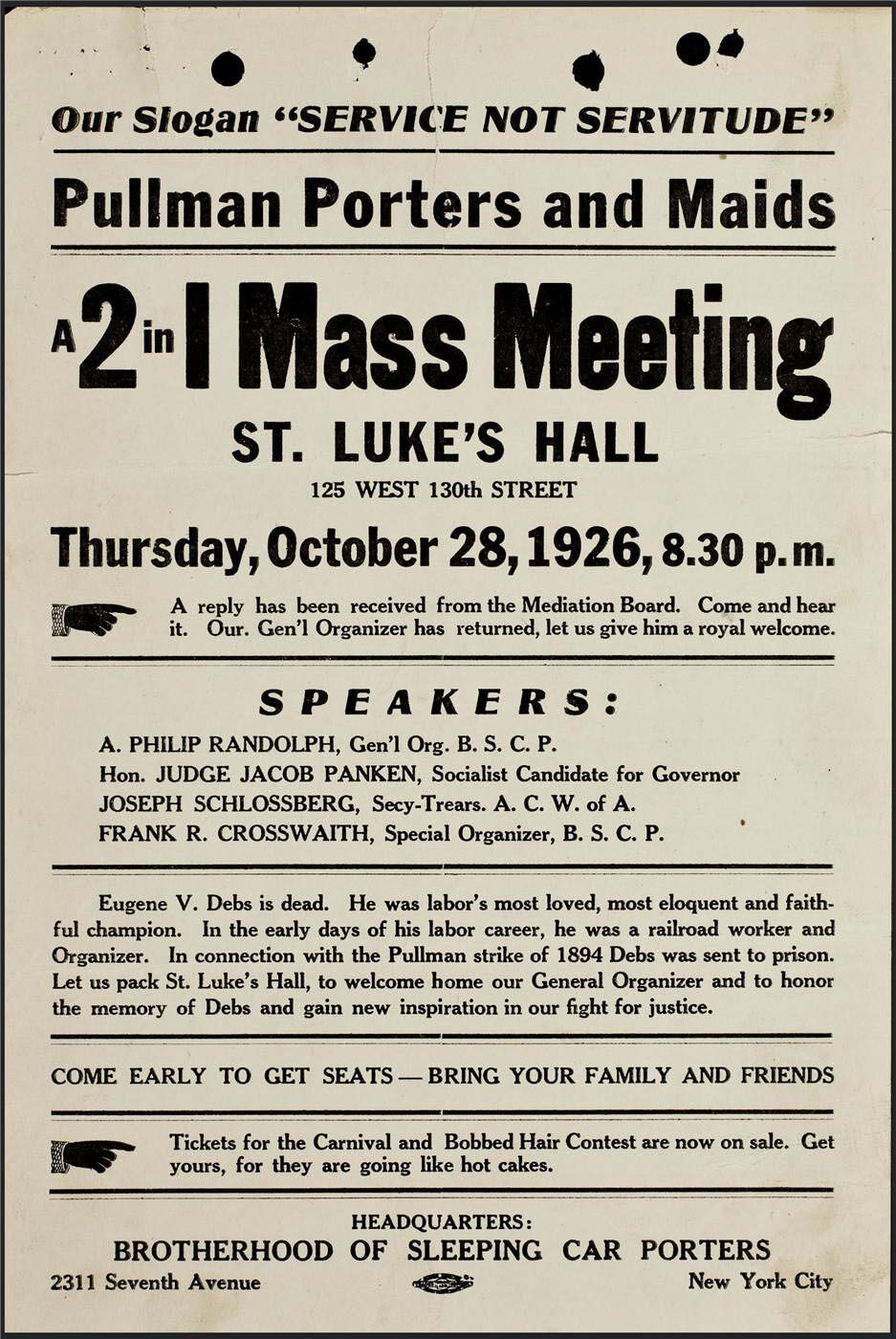Service Not Servitude
The US federal holiday Labor Day is dedicated to honouring the American labour movement and recognising the contributions and social and economic achievements of American workers. It is a day to celebrate strength and prosperity and to enjoy one last hurrah for summer.
There are differing opinions as to who actually proposed the Labor Day holiday in 1882 but after working on the African American Communities resource, it's the importance of the Pullman Strike to the founding of Labor Day that sparked my interest.
The Pullman strike began on May 11th, 1894 in Pullman, Chicago because of wage cuts for factory workers who built Pullman cars; measures set in place to limit the damage of plummeting company revenue. As a result, many factory workers joined the American Railway Union led by Eugene V. Debs, an American union labour leader, and refused to handle Pullman cars, including cars holding US mail. Within days, over 100,000 workers had joined the strike, affecting hundreds of towns and cities across the country.
President Grover Cleveland attempted to quash the strike by obtaining an injunction barring union leaders from supporting the strike. When Debs and other union leaders ignored the injunction, federal troops were deployed to enforce it. City by city, the strike collapsed; Debs was imprisoned and 30 strikers were killed. In the wake of the strike and general unrest, President Glover Cleveland attempted to repair ties with American workers and designated Labor Day as a federal holiday; a holiday that had been proposed some 12 years earlier.

Pullman Porters and Maids. A 2 in 1 mass meeting, Oct 28th 1926. Image @ The Newberry Library. Further reproduction prohibited without permission.
While working with the documents of African American Communities, I noticed this poster entitled ‘Service not Servitude’ which announces the news of the death of Eugene V. Debs, who often spoke out about the widespread prejudice against African Americans.
The poster reads ‘Eugene V. Debs is dead. He was labor’s most loved, most eloquent and faithful champion.’ This poster, from the Town of Pullman Records at the Newberry Library, advertises a meeting for Pullman Company workers where A. Philip Randolph, a leader in the African-American Civil Rights Movement, was speaking. A. Philip Randolph was President of the Brotherhood of Sleeping Car Porters, the first predominantly African American labour union, and worked tirelessly to improve the rights of African American labourers. The poster is dated October 28th, 1926 and advertises a meeting that would have discussed the poor working conditions and lack of equality for African American workers at the Pullman Company. The poster urges those working for Pullman not to give up on the fight for justice ‘and to honour the memory of Debs.’
African American Communities contains reports, posters, periodicals and correspondence sourced from The Newberry Library on the Pullman Company and the effect the company had on the American labour movement and the employment of many African Americans.
Recent posts

The blog highlights American Committee on Africa, module II's rich documentation of anti-apartheid activism, focusing on the National Peace Accord, global solidarity, and student-led divestment campaigns. It explores the pivotal role of universities, protests, and public education in pressuring institutions to divest from apartheid, shaping global attitudes toward social justice and reform.

This blog examines how primary sources can be used to trace the impact of young voices on society, particularly during pivotal voting reforms in the UK and the US. Explore materials that reveal insights into youth activism, intergenerational gaps, and societal perceptions, highlighting their interdisciplinary value for studying youth culture, activism, and girlhood across history.
